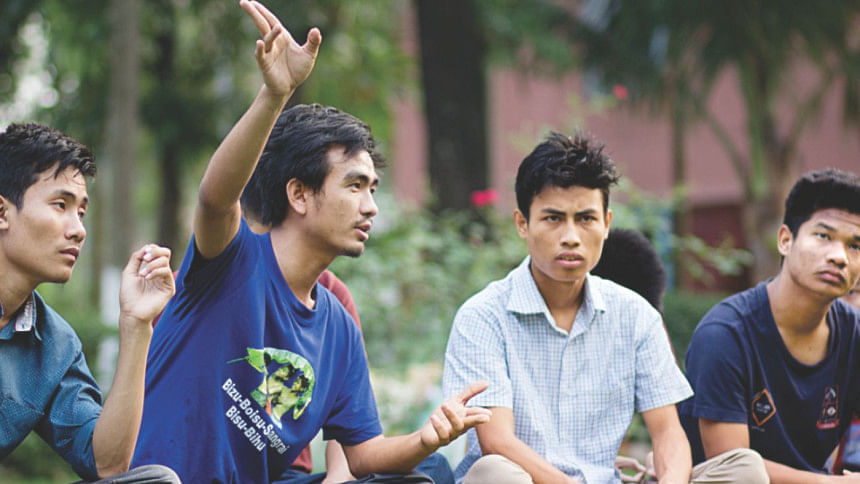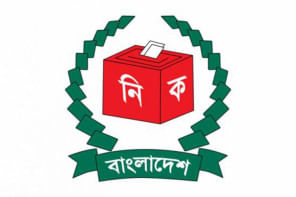The Valley with the shadow of death

The serene, lush green backdrop of Sajek valley, the largest union in the north of Chittagong Hill Tracts is touted as an amazing tourist destination, one that whole-heartedly allows an individual to be comfortably cradled in the bosom of Mother Nature itself. Gleaming resorts dot the landscape, punctuating the greenery of nature with the drab, yet luxurious greys of concrete. Come visit, come stay; that's the message tourists are given. Food is in abundance and the local cuisine is said to be remarkable. But a much more sinister, even painful, truth lies beneath the shiny wrappers of the recluse. In recent months, the different villages of the remote Sajek union under Baghaichhari upazila of Rangamati are facing acute food crisis. Where the tourists feast on the fruits of this wondrous land, the locals starve. The fresh air now thickens with the stench of disparity. The shadow of death casts a long shadow. And only a few souls, true children of the soil, rise to the unfortunate occasion.
This situation occurs not just on occasions but every year. And every year, a large segment of Bangladesh collectively turns a blind-eye, assuming that such is the way of life away from the protection of the city. Nature is harsh, they claim. But in a country that boasts a great food security programme and is recently even mulling the idea of burning grain to produce fuel, we must ask how in such a place there can still be entire communities of people sustaining themselves on wild potatoes and banana leaves, twice a day. A group of students in Dhaka University though have decided to pick up the mantle far too many have dropped and instead of asking further questions, they are taking action. Dhaka Biswabidyalay Jumma Shikharthi Paribar, a body of students, aims to work for those in need in places like Sajek valley. And they do so without expecting recognition, respect or any rewards in return. It's people aiding other people- the dream that we all had once dared to dream.

The group is currently gathering funds through which they will procure rice for the people of Sajek valley. The mass collection is happening at all the university halls. For awareness, the group even sits side by side with budding musicians at TSC, where they entertain the crowds for free, whilst highlighting their cause. Rebang Dewan, a member of the group, explained their on-going fund-raising, emphasising on the cost-effectiveness of their idea. “Instead of spending money on bus tickets for five or more people and accommodation cost, we directly send the money to the Sajek Union Chairman, and a well-known headmaster of the locality. They then buy the rice from the farmers in the Marissa upazila. The farmers are also willing to sell at a lower cost when we purchase in bulk,” he explained. While, generally, rice would cost 30tk per kg, prices have now shot up to 90-120 tk per kg, making purchase almost impossible. As development forces the people deeper into Sajek, they find themselves without access to road or even fertile land, exacerbating the crises.
The group began in 2011 and have shown a zeal for their work that cannot be summed up in mere words. They started by holding free seminars for people from Chittagong Hill Tracts, explaining the requirements and necessity for university admission. They distributed free calendars for the purpose and have even set up a few schools in remote villages. Additionally, they are actively involved in procuring treatment for those in remote areas who cannot afford the costs. They have also recently distributed food in Sunamganj, another area hit by a sudden food shortage.
The group and individuals like Rebang need to be lauded for their efforts and their selflessness, while not seeking recognition, deserves it nonetheless. The hope is that their passion kindles the embers of empathy in all of us. The hope is that in 2017, we fully commit to ensuring that no individual, on our fertile soil, goes hungry. Change begins at home. Let's start now.
If you are interested in providing help for the community in Sajek, contact Dhaka Biswabidyalay Jumma Shikharthi Paribar at 01856601897.

 For all latest news, follow The Daily Star's Google News channel.
For all latest news, follow The Daily Star's Google News channel. 



Comments